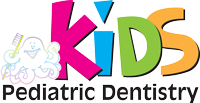14 Sep When Should You First Take Your Child to the Dentist?
It is a common misconception that children do not need to visit the dentist until their secondary or permanent teeth begin to emerge. It may seem unnecessary to care for teeth that will just fall out, however, caring for primary teeth serves as a foundation that can ensure healthy and strong secondary teeth when they emerge.
On average, a child’s first visit to the dentist is at 2.6 years of age. This is much later than the recommended age of 1, or within six months of the first tooth erupting1.
Why is care for Primary Teeth important?
According to the American Academy of Pediatric Dentistry (AAPD), primary teeth need to be cared for and kept in place until they naturally fall out. While parents may cite reasons against dentist visits, such as the child being too young, not having enough teeth and lack of insurance coverage, early care helps reduce and avoid major problems that can develop later.2
Some top reasons for primary teeth care and early dentist visits include:
- Ensuring gums are healthy
- Preventing tooth decay that can lead to disease and damage to secondary teeth
- Monitoring tooth growth and ensuring proper spacing for secondary teeth
- Helping with speech development and confidence with a healthy smile
- Recognizing and correcting damaging habits
A pediatric dentist can also help teach your child techniques and practices for caring for his/her teeth that will become strong habits for life. Early visits provide opportunities to learn about tooth care.

Early visits to the Dentist help acclimate your child to the Dentist Office environment
Visiting the doctor’s or dentist’s office can be an especially scary experience for your child. A pediatric dentist undergoes extra years of training especially for caring and calming children. A pediatric dentist’s office is also furnished to comfort and appeal to children and equipped with tools that children won’t find scary or intimidating.
If you are taking your child to the dentist for the first time, help prepare them so they won’t have anxiety.
- Make a pre-visit to the dentist. Bring your child to the dentist office when you visit so they can get familiar with the office environment. They won’t be going straight to the dentist chair and getting a mouthful of tools, so it will make the first check-up easier. They can also meet the staff and dentist so they won’t be complete strangers.
- Play doctor (or dentist). Practice looking at your child’s mouth and have them examine yours. The action will become more familiar and can even be fun for them.
- Plan ahead. Give your child plenty of time to prepare so the first visit isn’t rushed and you have time to ease any anxiety they may have. The more relaxed and comfortable your child is, the easier the first visit will be.
Early, planned visits to the dentist will help ease your child’s concerns and also build important practices that will help ensure they have lifelong healthy teeth.
A Pediatric Dentist can help correct problems and habits
Your pediatric dentist can identify common problems with your child’s teeth and help correct them. Before your child’s first visit, here some things to look for and ask your pediatric dentist about3:
- Thumb sucking. A natural reflex in infants and children, thumb sucking can pose a problem if your child continues this habit past the age of 5. Tooth alignment, jaw alignment and proper development of the palate can all be affected from thumb sucking. Remove their thumb or fingers from their mouth when they fall asleep at night.
- Tooth decay. Milk and formula has sugars that can promote bacteria growth and cause tooth decay. If your child is always carrying a bottle or cup of milk, this can accelerate tooth decay problems. Have them drink water instead when they are thirsty to prevent tooth decay problems.
- Premature tooth loss. If primary teeth are lost due to decay or injury before permanent teeth are ready to emerge, it can cause tooth and jaw alignment problems. Your pediatric dentist can help diagnose and monitor tooth loss problems so they do not become a major problem later.
If you have questions about taking your child to the dentist, Dr. Lisi at Kids Pediatric Dentistry in Allen will answer all your questions and concerns. Please call 972-727-0011 to schedule a consultation.
 Sources
Sources
- When should your child first visit the dentist? It might be earlier than you think.
- American Academy of Pediatric Dentistry
- The 5 Most Common Dental Problems in Children
